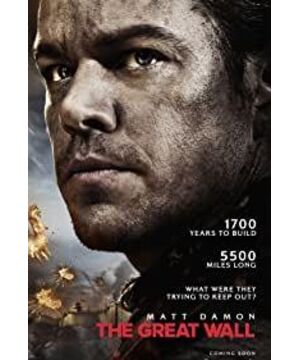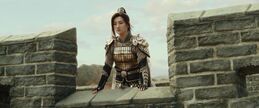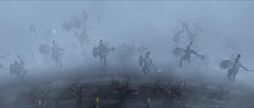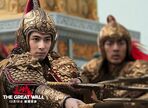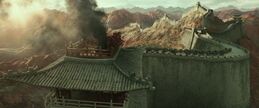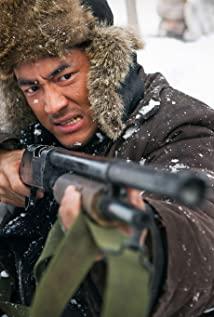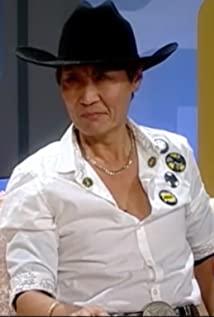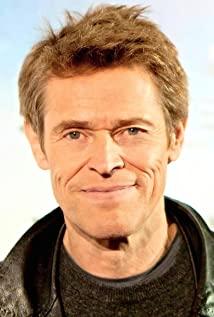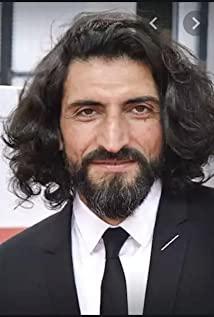The director of the film is Zhang Yimou, starring Matt Damon, Jing Tian, Andy Lau, etc. It is said that the total investment is 150 million US dollars, so no matter from props, scenes, music, or 3D special effects, they have done quite well.
The most direct feeling I felt after watching it was: It’s beautiful! I want to do it again!
Let's take a look at what else the production team of this film has made: "Star Wars 7", "Transformers", "Avatar", "Warcraft", "Rise of the Planet of the Apes", "The Last Stand of the X-Men", "The Bat" "Man", "Bourne Bourne" 123, "Pirates of the Caribbean" 123, "World War Z", "Jurassic World", "Pacific Rim", "Guardians of the Galaxy"... Sure enough, it's amazing what.
"The Great Wall" is a film set in ancient China, about the offensive and defensive battles between humans and monsters. The plot is relatively simple. To sum up, you attack, I defend, and then wait for an opportunity to kill you. But simple plot doesn't mean boring.
The content of the story of "The Great Wall" is very compact, as natural as flowing clouds and water, without being sloppy or provocative. It feels exciting, exciting, exciting!
The specific details will not be revealed. Spoilers are an evil thing, and interested friends can watch it by themselves. In addition, I would like to remind you that there are several scenes that are quite scary and exciting.
For some more critical audiences, there may be two slots:
1. What? The Great Wall is actually used to defend against monsters?
2. Why does Laomouzi even want jerky actors like Jing Tian, Lu Han, and Wang Junkai?
In fact, I also had this doubt before watching the movie, and after watching it, I think these two are no longer a problem, because there is no sense of abruptness. In my opinion:
1. Science fiction movies have always made a story that sounds fake to be very real (otherwise you can tell me what the meaning of Marvel movies is), obviously Zhang Yimou did it this time.
Second, an ordinary knife can also be powerful in the hands of a master, so there is no really bad actor, it depends on which director is in the hands.
All in all, "The Great Wall" is a successful popcorn movie, made with a lot of money, and a sci-fi blockbuster with many Chinese elements.
Now let's talk about some interesting things in the movie.
[Dynasty]
It may be because it is a science fiction film, so the historical background is not clearly explained in the film. I also heard people next to me ask more than once during the filming process, which dynasty is this?
So as a historical mystery, it must come out here to show off.
Through the historical elements presented in the film, we can exclude one by one:
1. Poems of Tang Dynasty poet Wang Changling appeared (excluding the dynasties before the Tang Dynasty).
2. Black powder was used in the military (it was cited in the military at the end of the Tang Dynasty and was widely used in the Song Dynasty. Further excluded).
3. Kyoto is in Bianliang (excluding the dynasties other than the Northern Song Dynasty).
Explanation: Bianliang is Kaifeng. Historically, it was both called Bianliang and the capital. In fact, it was only the Northern Song Dynasty. Although the capital of Houliang was also in Kaifeng, it was not called Bianliang at that time. Not to mention the Yuan and Ming dynasties, although they are known as Bianliang, they are not official capitals. In addition, Bianliang was changed to Kaifeng in the early Ming Dynasty, and there was no more Bianliang after that.
4. Little emperors (there were three little emperors in the Northern Song Dynasty).
From these four points, it can be inferred that the historical background of this film is obviously set in the Northern Song Dynasty.
So, is there a loophole in this setting?
Um! There is a very, very big loophole! I believe that director Zhang Yimou (or screenwriter) should have noticed it too, but he was unable to change it, so he did not dare to explicitly explain the historical background in the film.
I suggest that viewers who want to complain about this movie should complain about this, and I guarantee that the filmmakers will be powerless to refute. Since you want to complain, you should also spit out the level, not brainless.
What's wrong with this setting? Sell it first, wait until the end.
[Taotie]
The monsters in the movie are collectively called "taotie". There are three types of this creature: beastmaster, guard, and soldier.
The Beastmaster is responsible for breeding and commanding. His IQ is much higher than those of the monsters in science fiction films, and he has strong learning and leadership abilities.
The guards have strong defensive capabilities, and are invulnerable to swords and guns. They specialize in protecting the safety of the Beastmaster. They are large but not many in number.
The soldiers are very aggressive, with great speed and lethality, and they also have a certain IQ, and even have the ability to detect. What is even more frightening is that there are countless numbers of them, and the scene of the attack is spectacular and scary.
The appearance of gluttonous food in the film is in line with the image recorded in ancient Chinese mythology: "gluttonous food, the name of a beast, the body is like a cow, the face of a man, the eyes are under the armpit, and it can eat people." ” also recorded: “There is a beast, its shape is like a sheep’s body and human face, its eyes are under the armpit, tiger teeth and human claws, its sound is like a baby, its name is roe deer owl, it is cannibal.”
Roe deer owl (páo xiāo ) is gluttonous (tāo tiè).
Ancient beasts, flesh and blood, greedy and brutal, alluding to the ambition and desire of human beings.
[Army]
Zhang Yimou seems to have always had a special liking for the beauty of the army. For example, in the previous "Golden Armor in the City", as long as the army is dispatched, it must be a visual feast after another.
The army in this movie is called the "Shadowless Army", which is dedicated to guarding the Great Wall, and their existence is also dedicated to resist the attack of gluttonous gluttons. From the armor and colors of the troops, it can be seen that the Shadowless Army is roughly divided into five arms, which correspond to the five beasts: bear, crane, tiger, eagle, and deer.
Bears are heavy infantry soldiers with black armor, headed by Shao Dianshuai (Zhang Hanyu), the main force in the army, fighting monsters in close quarters.
Crane is a flying rope soldier, with blue armor, headed by General Lin (Jing Tian), and all female soldiers, as light as a swallow flying into the air.
The tiger is an engineering soldier with yellow armor, headed by General Wu (Peng Yuyan), responsible for the operation of firearms and organs.
Eagles are bowmen with red armor, headed by General Chen (Lin Gengxin), responsible for long-range attack and cover.
The deer are light infantry with purple armor, headed by General Deng (Huang Xuan), responsible for maneuvering and support.
It can be seen that the film production team has put a lot of effort into clothing, and each arm has its own specific armor. During the viewing process, you can also pay attention to the helmets of each leader, which correspond to their respective animal head patterns, and the workmanship is very fine.
Although the setting of Shadowless Army is good, I personally think that if it is set according to Qinglong, Baihu, Suzaku, Xuanwu, and Huanglong, it will have more Chinese cultural colors.
[Technology]
The combat equipment that appears in the movie is really terrifying!
Needless to say about swords, spears, swords, and halberds, what is even more powerful are those rockets, artillery, zippers, sounding arrows, harpoon crossbows, thunderbolts, thunderbolts, etc., etc., they are cool and shocking!
After enjoying it, I have to ask: Was there such an advanced black technology in that era?
I came back and checked the scientific and technological records of the Song Dynasty, and I really gained knowledge again. These black technologies are really there, and there are all kinds of them. The movie is just artistically processed.
In the Northern Song Dynasty, those inventions already existed. At that time, gunpowder became the necessary equipment for the Song army. The government also established a gunpowder workshop in the capital, Bianliang, specializing in the production of rockets, artillery, thunderbolts, thunderbolts and other related equipment, and the output was still quite large.
Here we should also talk about a more exaggerated black technology: manned Kongming lanterns.
In the movie, there are small kongming lanterns and large kongming lanterns, small kongming lanterns are used for blessing, and large kongming lanterns are used to carry people, that is, hot air balloons.
Kongming lanterns have been used in the military as early as the Three Kingdoms period. As for whether it was invented by Zhuge Liang, there is really no basis for this, but it is said that he invented it, so it is called Kongming lanterns. It doesn't matter if it was invented by Zhuge Liang anyway, the important thing is that the principle of Kongming lantern is the same as that of a hot air balloon, which can be regarded as the prototype of a hot air balloon.
The hot air balloon was invented by the French in the 18th century, so the role of Kongming lanterns is exaggerated in the film. After all, it is a science fiction film, and it is understandable that some future technologies will appear.
[Vulnerability]
Now let's talk about two places that are likely to be the loopholes in the movie.
Vulnerability 1. The male protagonist William is looking for Heihuoyao (these three words constitute a sensitive word, which is not allowed in QQ space, so the word "yao" is used instead of the word "medicine" below).
Note 1: The male protagonist (who should have grown up in Spain) came to the Great Wall in order to find the black fire Existed in the 13th century (when Genghis Khan was on his expedition, European countries began to understand the application and manufacture of black fire obsidian).
Note 2: The Northern Song Dynasty (960-1127) existed in the 10th-12th centuries.
Two loopholes, the Great Wall. As the theme of the film, it turned out to be the biggest loophole in the whole film!
Note 1: After the demise of the Tang Dynasty, it passed through Later Liang, Later Tang, and Later Jin. These dynasties were very short-lived. What I want to talk about here is that after Shi Jingtang ceded the "Sixteen Prefectures of Yanyun" to the Khitans (Liao Dynasty), the Central Plains The barrier of the Great Wall has been lost.
Note 2: The Great Wall of defense did not exist in the Song Dynasty.
These two loopholes are both historical and time-related issues. People who are not familiar with history should not be able to detect them at all, and they will not have any adverse effects on the film itself. I am just showing off here. Still need to read more books.
After all, this is a sci-fi movie, and even the gluttonous beasts have appeared, so you don't need to care about the small details of the dynasty, as long as the movie is enjoyable to watch.
Finally to sum up.
Although the movie "The Great Wall" does not have any profound connotation and meaning, it is really good-looking and worth going to the cinema to experience it.
The ending song is so good. As soon as the voices of Wang Leehom and Tan Weiwei came out, I said that I didn't want to leave the scene.
"Qin, the moon is bright, the moon is Han, and the people of the Long March have not returned. But let the Dragon City fly there, and don't teach Huma to pass the Yin Mountain."
I want to say - but let the Great Wall fly there, and don't teach the gluttonous to pass the Yin Mountain!
View more about The Great Wall reviews


